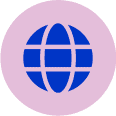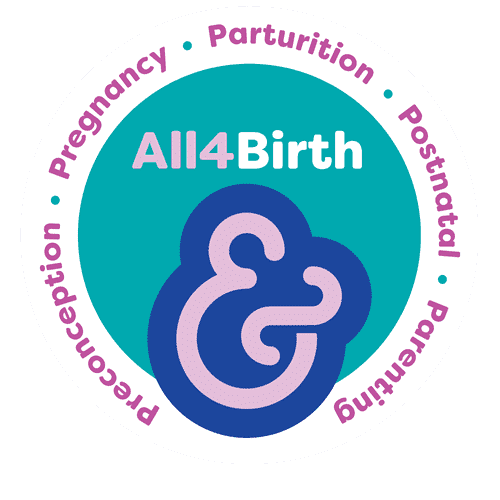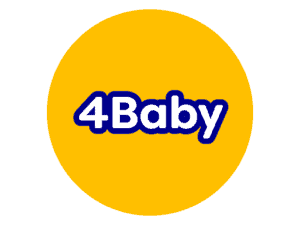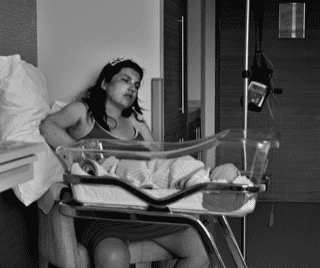Navigating Physiology in the Fourth Trimester
Abbie Tomson
Midwife MSc, BSc, Yoga Teacher, Project Lead at All4Birth
@enevlorel
Welcoming a new life into the world marks the beginning of an incredible journey for parents. While much emphasis is placed on pregnancy and childbirth, the postpartum period, often referred to as the fourth trimester, is equally significant. During this time, the body undergoes profound physiological changes as it transitions from pregnancy to motherhood. In this blog post, we delve into the physiology of the postpartum period and offer guidance and resources to support maternal recovery, breastfeeding, and mental health during this transformative time.
Physiological Changes
The postpartum period is a time of significant physical and hormonal adjustments as the body returns to its pre-pregnancy state and adapts to the demands of caring for a newborn. Some fundamental physiological changes include:
- Uterine Involution: After childbirth, the uterus undergoes involution, gradually returning to its pre-pregnancy size and shape. This process is facilitated by contractions of the uterine muscles, which help expel excess blood and tissue.
- Hormonal Shifts: Hormonal fluctuations occur as estrogen and progesterone levels decrease following childbirth. Additionally, prolactin levels support breastfeeding, while oxytocin levels increase to facilitate milk let-down and promote maternal bonding.
- Breast Changes: The breasts change to prepare for and support breastfeeding. This includes engorgement as milk production begins and adjustments in nipple size and shape to facilitate breastfeeding.
- Recovery from Birth: The body undergoes physical recovery from pregnancy and childbirth demands, including healing perineal tears or cesarean incisions and resolution of swelling or discomfort.
Supporting Maternal Recovery, Breastfeeding and Mental Health
Navigating the fourth trimester can be challenging, but there are many resources and strategies available to support maternal well-being during this time:
- Postpartum Care: Prioritize self-care and rest and enlist the support of family and friends to help with household tasks and childcare. Attend follow-up appointments with healthcare providers to monitor physical recovery and address concerns.
- Breastfeeding Support: Seek resources and support groups for breastfeeding mothers, such as lactation consultants or peer counsellors. Practice skin-to-skin contact and responsive feeding to enhance bonding and milk production.
- Mental Health: Be proactive in addressing mental health concerns by staying connected with loved ones, seeking professional support, and practising self-compassion and mindfulness. Take time for activities that promote relaxation and stress relief.
- Community and Peer Support: Connect with other new mothers through online forums, support groups, or parenting classes. Sharing experiences and advice with peers can provide valuable support and camaraderie during postpartum.
The Concept of the ‘First Forty Days’
The concept of the “first 40 days” postpartum, also known as the “fourth trimester” or the “postnatal period,” holds significant cultural and historical significance in many societies around the world. This period is considered a critical time for the mother’s physical and emotional recovery, bonding with the newborn, and establishing breastfeeding, often characterised by specific practices and traditions aimed at supporting maternal and infant well-being.
Cultural References:
1. Traditional Chinese Medicine (TCM): In Chinese culture, the first 40 days postpartum, known as “zuò yuè zi” or “sitting the month,” is a deeply ingrained tradition. During this time, new mothers are encouraged to rest, eat nourishing foods, and avoid strenuous activities to facilitate recovery. Special postpartum diets rich in soups, broths, and herbal teas are often prescribed to replenish lost nutrients and promote healing.
2. Latin American Cultures: In many Latin American countries, the postpartum period is celebrated through rituals such as the “cuarentena,” which lasts for 40 days. During this time, mothers receive support from family members and are encouraged to rest and recover while focusing on bonding with the baby.
3. Islamic Traditions: In Islamic cultures, the postpartum period, known as “nifas,” typically lasts for 40 days. During this time, mothers are exempt from certain religious obligations and are encouraged to rest and recuperate. Family and community members often assist with household chores and caring for the newborn.
4. Ayurvedic Practices:* In Ayurveda, the traditional system of medicine in India, the postpartum period is considered a time of delicate balance and vulnerability. Mothers are advised to follow specific dietary and lifestyle practices, including consuming warm and nourishing foods, practising gentle postpartum yoga or massage, and avoiding exposure to cold or excessive stimulation.
Key Principles:
1. Rest and Recovery: The first 40 days postpartum emphasize the importance of rest and recuperation for the mother’s physical and emotional well-being. This period allows the body to heal from childbirth and adjust to the demands of caring for a newborn.
2. Nutrition and Nourishment: Special attention is given to the mother’s diet during the postpartum period, with an emphasis on nutrient-dense foods that support healing and lactation. Traditional postpartum foods often include soups, broths, grains, and herbs believed to promote recovery and milk production.
3. Emotional Support: The postpartum period can be emotionally challenging for many women as they navigate the transition to motherhood. Culturally specific rituals and practices provide emotional support and validation for the mother’s experiences, fostering a sense of community and belonging.
4. Bonding and Breastfeeding: The first 40 days postpartum are crucial for bonding with the newborn and establishing breastfeeding. Culturally specific practices, such as skin-to-skin contact, baby-wearing, and co-sleeping, facilitate bonding and promote breastfeeding success.
In conclusion, the concept of the “first 40 days” postpartum encompasses a rich tapestry of cultural traditions and practices aimed at supporting maternal and infant well-being during the critical period following childbirth. By honouring the unique needs of new mothers and babies and drawing upon cultural wisdom and traditions, communities around the world celebrate the profound journey of motherhood and the sacred bond between mother and child.
Conclusion
In welcoming a new life into the world, we embark on a journey that extends far beyond the moment of birth. While pregnancy and childbirth are often the focus of attention, it is during the postpartum period, the so-called fourth trimester, where profound transformations occur for both mother and baby. Through this blog post, we’ve delved into the intricate physiology of the postpartum period and provided guidance and resources to support maternal recovery, breastfeeding, and mental well-being during this transformative time.
Physiologically, the body undergoes remarkable changes as it transitions from pregnancy to motherhood. From uterine involution to hormonal shifts and breast changes, each adjustment plays a crucial role in the mother’s recovery and the establishment of a nurturing environment for the newborn.
Supporting maternal recovery, breastfeeding, and mental health during the postpartum period requires a holistic approach. Prioritizing self-care, seeking breastfeeding support, and fostering emotional well-being are essential steps in navigating this phase with grace and resilience.
In essence, the “first 40 days” encapsulate a wealth of wisdom passed down through generations, celebrating the sacred journey of motherhood and the profound bond between mother and child. By honouring these cultural traditions and embracing the physiological changes of the postpartum period, we honour the resilience, strength, and beauty of the maternal experience.
Links to resources
 Books
Books
Brain Health from Birth: Nurturing Brain Development During Pregnancy and the First Year by Rebecca Fett
The First Forty Days: The Essential Art of Nourishing the New Mother by Heng Ou
The Fourth Trimester: A Postpartum Guide to Healing Your Body, Balancing Your Emotions, and Restoring Your Vitality by Kimberly Ann Johnson
The Fourth Trimester Companion: How to Take Care of Your Body, Mind, and Family as You Welcome Your New Baby by Cynthia Gabriel
Natural Health after Birth: The Complete Guide to Postpartum Wellness by Aviva Jill Romm
Nurture: A Modern Guide to Pregnancy, Birth, Early Motherhood—and Trusting Yourself and Your Body by Erica Chidi Cohen
The Postnatal Depletion Cure: A Complete Guide to Rebuilding Your Health and Reclaiming Your Energy for Mothers of Newborns, Toddlers, and Young Children by Dr. Oscar Serrallach
Breastfeeding and the Fourth Trimester: A supportive, expert guide to the first three months by Lucy Webber
 Podcasts and Apps
Podcasts and Apps
Baby Buddy app, created by the Best Beginnings Charity
Fourth Trimester Postpartum Stories
 Websites
Websites
References
- Lee, N. and Saha, S., 2011. Nausea and Vomiting of Pregnancy. Gastroenterology Clinics of North America, [online] 40(2), pp.309-334. Available at: <https://www.ncbi.nlm.nih.gov/pmc/articles/PMC3676933/>















